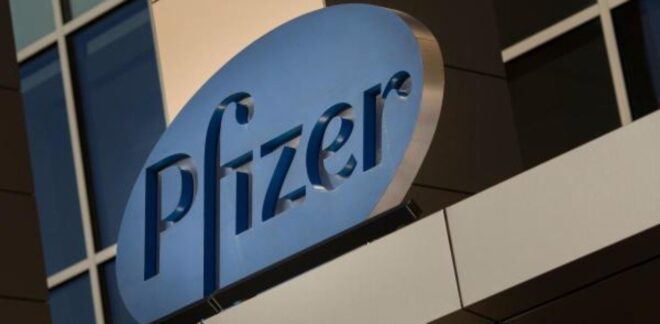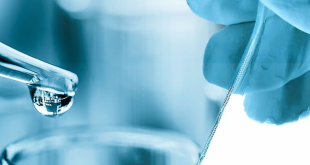The global COVID-19 pandemic has claimed to this date around 639,317 lives and infected 15,745,102 around the globe and it is still in the process of spreading its horror among people. The world is in the need of a vaccine to fight this devil. Therefore, the Pfizer and BioNTech have joined hands together for the development of a vaccine against the COVID-19. The company has used its BNT162 mRNA vaccine program to develop a single nucleoside modified messenger RNA candidates. The Pfizer and BioNtech mRNA vaccine has four experimental candidates which have a key characteristic of immunogenicity. These candidates carry mRNA instructions either for making an antigen for the spike glycoprotein on the surface of the virus or for encoding a small fraction of spike glycoprotein known as the receptor-binding domain. Among these four, the two most advanced candidates BNT162b1 and BNT162b2 have received fast track designation from FDA after their successful preliminary studies.
Both BNT162b1 and BNT162b2 are lipid nanoparticles that comprise of nucleoside modified RNAs. The BNT162b1 encodes the virus receptor-binding domain whereas BNT162b2 encodes the virus full-length spike protein antigen.
Pfizer Coronavirus Vaccine(mRNA) Phase Results
Pre-Clinical Study
Based on the evaluation of safety and immunological response during the pre-clinical studies, among the four BNT162 experimental candidates of Pfizer and BioNtech, two have shown very promising results. These two candidates are BNT162b1 and BNT162b2. During the pre-clinical studies, both BNT162b1 and BNT162b2 had provoked positive immune response through the antigen-specific helper T-cells that are CD4+ and CD8+, elevated neutralizing antibodies in different study animals. It also had provided protection in primates when they were challenged with the SARS-CoV.
Phase I & II trial
Phase I/II of the Pfizer coronavirus vaccine was a randomized, single-blinded, dose-dependant and placebo-controlled. The purpose of the study was to determine the safety, efficacy, tolerability, immunogenicity profile in healthy individuals. Also to select a lead candidate vaccine that will be taken to further phases of clinical trials. The study was conducted in the US. At the beginning of the study, 45 healthy volunteers between the age of 18-55 years were included. The exclusion criteria included pregnant and breastfeeding women, those who are trying to get pregnant, and the ones who have taken part in any preceding trial of adenovirus or coronavirus vaccine. Three dose groups were 10 µg, 30µg, and 100µg.
Twenty-four volunteers received 2 injections of 10 µg and 30µg BNT162b1, twelve volunteers receive a single injection of 100 µg and nine volunteers received 2 doses of a placebo control. The volunteers received two doses with a 3-weeks gap. After 4-week, RBD-binding IgG antibodies were found to be in greater concentration than those found in the convalescent patient. The neutralizing antibodies against the SARS-CoV found were also greater than the convalescent patient of COVID-19. The vaccine was found to be safe and well-tolerated in volunteers. Dose-dependent local and systemic adverse events were also found. But all of them were mild to moderate events and none of them were serious. The Chief executive officer and Co-founder of BioNTech, UgurSahin expressed his thought about preliminary results as,
“These preliminary data are encouraging in that they provide an initial signal that BNT162b1 targeting the RBD SARS-CoV-2 is able to produce neutralizing antibody responses in humans at or above the levels observed in convalescent sera – and that it does so at relatively low dose levels. We look forward to providing further data updates on BNT162b1.”
Phase I/II clinical trial was also conducted in Germany. It was a randomized and dose-dependent trial. A total of 60 healthy volunteers between 18-55 years were included in the study. The individuals who had an active infection or been exposed to COVID-19 were not included in the study. Five dose groups were 1 µg, 10 µg, 30 µg, 50 µg, and 60 µg. The volunteers were divided into 5 groups. Each group had 12 volunteers. The dose groups 1 µg, 10 µg, 30 µg, and 50 µg received two doses that were prime and booster doses with a 3-week gap. The dose group 60 µg received only one dose.
The neutralizing activity against SARS-CoV and RBD-binding IgG antibodies levels were found to be greater than those found in convalescent patients of COVID-19. Also during this trial high levels of helper T-cells such as CD4+ and CD8+. There was no indication of T_cell response to be dose-dependent. The vaccine had shown good safety, tolerability, and immunity profile. Some grade 3 adverse events such as erythema at the injection site or flu-like symptoms had been reported. All these adverse effects were managed with minimal efforts. Other local and systemic adverse events were mild to moderate nature. No serious adverse effect has been reported. ÖzlemTüreci, CMO and Co-founder of BioNTech had shared his thoughts as,
“It is encouraging that the data on BNT162b1 from the German study cohort are very much in line with what we have seen in the U.S. study cohort. The preliminary data indicate that our mRNA-based vaccine was able to stimulate antibody as well as T-cell responses at remarkably low dose levels. We believe both may play an important role in achieving effective clearance of a pathogen such as SARS-CoV-2.”
Kathrin U. Jansen who is the vice president and head of vaccine R&D Pfizer said,
“These interim results from the German study, combined with initial data from the U.S. study, highlight the potential of this mRNA-based vaccine approach and represent an important step forward in our development efforts for the BNT162 program.We remain dedicated to developing an effective vaccine to fight the COVID-19 pandemic, with safety at the forefront and look forward to sharing additional data as the program progresses.”
Phase III trial
Among the four candidates, BNT162b1 and BNT162b2 were found to be strong candidates as a vaccine during pre-clinical and clinical studies. But Pfizer and BioNtech have selected BNT162b2 as the final candidate to progress to Phase II/III study based on its positive results, good immunity, and tolerability profile during the pre-clinical and clinical studies. Phase III study will include 30,000 volunteers between the age of 18-85 years and will be conducted at 120 centers around the world.
Pfizer Coronavirus Vaccine(mRNA) Mechanism
A vaccine is a biological preparation that is used to stimulate the immune system to produce antibodies against a particular disease. The vaccine prepares the body so that later when the antigen enters the body of a vaccinated individual, the antibodies stimulated by the vaccine immediately recognizes the antigen and fight it off. The vaccines provide protection against a certain disease. There are various types of vaccines. One of the most common is the conventional or traditional vaccines. These vaccines are basically the replication-deficient, non-virulent, live or dead pathogens or their proteins.
When these conventional or traditional vaccines are injected into the body they provoke the immunes system and initiate the production of antibodies which later on if encounter the same pathogen can fight it off. The conventional or traditional vaccines can either provide life-long protection or they might need booster doses. The development of these conventional or traditional vaccines requires a lot of time and effort, the pathogens are modified to make them non-virulent and replication-deficient otherwise on entrance into the body they might cause infection instead of stimulating the immune system. Another type of vaccine is the nucleic acid vaccines that can either be DNA or RNA vaccine. These vaccines basically contain the genetic material inside a lipo nanoparticle which makes its entrance into the cell easy.
Once this genetic material enters the cell, it utilizes host machinery to make copies of spike glycoproteins of the pathogen. This provokes the immune system. The nucleic acid vaccines can be easily be prepared than conventional vaccines because there is no need to make pathogen non-virulent or replication-deficient. These vaccines are stable and provide long term protection. The Pfizer coronavirus vaccine is a nucleic acid based messenger ribonucleic acid (mRNA) vaccine. Currently, there is no approved mRNA vaccine for humans.
The RNA vaccines are broken more rapidly than the DNA vaccines, the weak stability and potency are one of the limiting factors of RNA vaccine. The Pfizer coronavirus vaccine contains the fragments of SARS-CoV mRNA, which encodes for the production of SARS-CoV spike glycoproteins. When this mRNA enters the cell, it takes control of the host genetic machinery. It starts the translation of the genetic instruction on the mRNA and starts producing the antigenic spike glycoprotein. These antigenic spike glycoproteins are then expressed on the surface of the cell. This provokes the immune system which then recognizes them and starts the production of antibodies and T-cells against the antigen to fight it off.
Pfizer Coronavirus Vaccine(mRNA) Availability
If the ongoing trials are successful and they get regulatory approval, the Pfizer and BioNTech are planning to deliver the vaccine by the end of 2020. The company is expecting to deliver 100 million doses by the end of 2020 and more than 1.2 billion doses by the end of 2021. The company has also agreed with the UK to deliver 30 million doses of vaccine after its successful clinical trials.
Pfizer Coronavirus Vaccine(mRNA) Cost
The Pfizer and BioNTech have released a statement about the cost of the vaccine which will be kept 19.50$.
 Health & Care Information
Health & Care Information 


